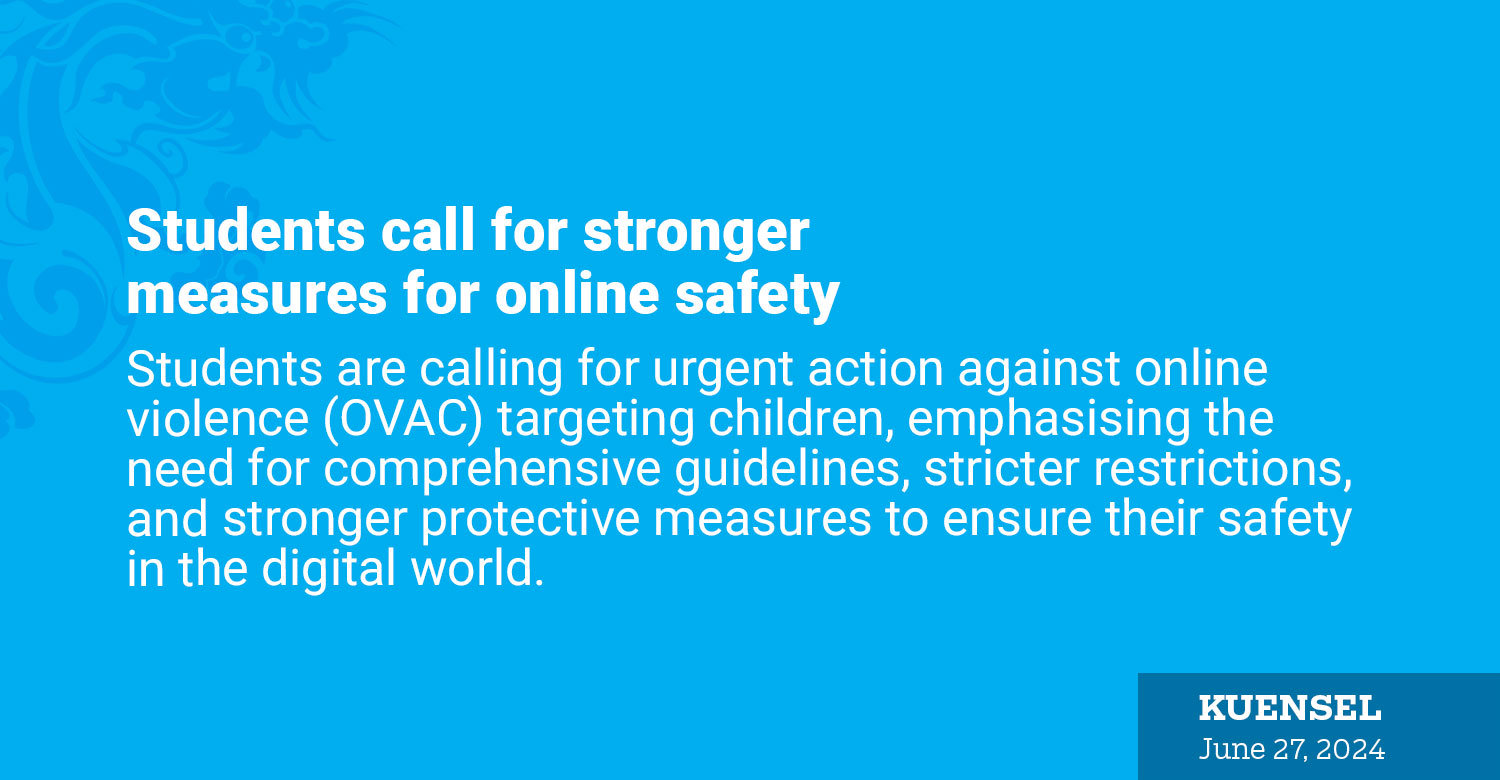
Students are calling for urgent action against online violence (OVAC) targeting children, emphasising the need for comprehensive guidelines, stricter restrictions, and stronger protective measures to ensure their safety in the digital world.
A compilation of reports by GovTech and UNICEF has revealed growing concerns about Online Violence Against Children (OVAC). The findings highlight the urgent need for proactive measures from parents, educators, policymakers, and other stakeholders to address and prevent online violence and abuse.
The students proposed solutions such as reporting incidents to trusted adults and launching awareness campaigns featuring idols, influencers, and teachers.
These campaigns aim to raise awareness and promote responsible online behavior and safer digital practices among children and adolescents.
The report found that both parents and teachers lacked awareness of the risks associated with children being online. It also highlighted that many parents lacked knowledge and understanding of online violence and Child Online Protection (COP).
In Bhutan, 94 percent of households and 86 percent of the population have internet connectivity. Among them, 93 percent of students have internet access at home, school, or within their community.
These findings point to the critical need to foster balanced and secure online engagement practices among students.
The COP guidelines are seen as a path forward to making the internet safer for children. Different stakeholders, including parents, teachers, government officials, and industry partners, need to cooperate and identify the best ways to implement the COP guidelines.
The COP guidelines outline the roles of various stakeholders and provide guidelines to ensure a safe online environment for children and youth.
According to the study, children go online for various reasons, including learning, playing online games, social networking, and staying in touch with friends, among others.
However, students shared their negative experiences, such as cyberbullying, encountering inappropriate content, and encountering fake accounts online.
One student recounted witnessing cyberbullying among their friends. Students described a video of a fight between classmates being uploaded online, which led to the girl in the video facing humiliation from negative comments.
This incident underscores the dangers of online bullying and the rapid spread of misinformation.
Thirty-five percent of older students reported receiving disturbing emails, posts, and chat messages online.
These experiences could negatively impact their self-esteem and harm relationships. While some students may not have been personally affected, they have witnessed the harm experienced by others.
Need for right interventions
Students expressed a desire for a safer online environment where they can explore and engage with the internet without fear of harm.
Focused Group Discussions on Child Online Protection (2023) revealed that children reported experiencing online bullying, encountering inappropriate content, and facing identity theft.
They also encountered challenges such as exposure to inappropriate content, encountering fake accounts, and experiencing social media hacking.
The study found that students view education and awareness programs as essential. They emphasised the importance of teaching responsible online behaviour and digital literacy skills at home and in schools.
Most students prefer talking to their friends than to parents, teachers, siblings or reporting to police or National Commission for Women and Children when they see someone misusing their personal information according to the study.
The findings suggested that parents recommend setting limits on phone usage and controlling data recharge.
The study emphasised the importance of having trusted adults available to listen, provide support, and take appropriate action when children face online violence.
These trusted adults should offer various support options, such as face-to-face conversations, online chats, or phone calls, depending on the child’s comfort level.












